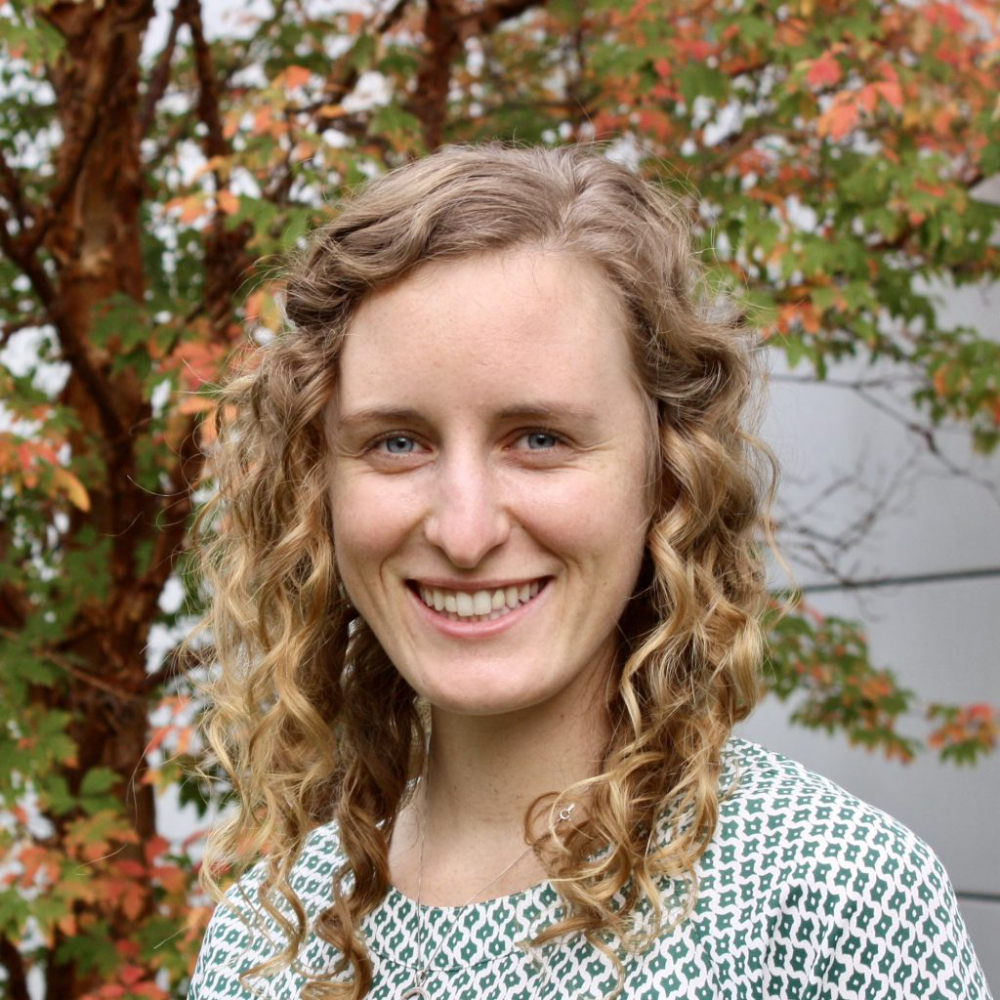Due to forecasted weather conditions, the university has implemented REMOTE STATUS on Friday, December 19, 2025. Students, faculty, staff, see email for more information.
Alumni Spotlights
Kali Smolen '17

Employer
MD-PhD Student
LinkedIn Profile
https://www.linkedin.com/in/kali-smolen-mdphd/
1. Tell us about your journey since graduation.
After graduating from GVSU in April 2017, I moved to New England
to pursue an MD-PhD dual degree at Dartmouth College in Hanover, New
Hampshire. I am currently in year eight of nine in my program. For
those not familiar with an MD-PhD, it is when you pursue both doctoral
degrees, usually at the same institution. The standard structure is
two years of medical school, three to five years of graduate (PhD)
training, and then two years of medical school (clinical clerkships).
After this, you typically apply to medical residency or pursue a
postdoctoral fellowship. You may be thinking: “That is so long!” or
“That sounds so hard!” While you’re not wrong, let me tell you why I
chose this path. The goal of MD-PhD training is to become a
“physician-scientist,” or a doctor who not only sees
patients/understands the clinical setting but who also is trained to
perform research, plan experiments, read the literature, and pursue
answers to questions related to human disease. You’ll often hear the
phrase, “translational research,” which refers to investigating
mechanisms of disease or therapeutics that will translate to helping
patients in a clinical setting. At the heart of it, this is why I
chose to pursue a dual degree. I love seeing patients and hearing
their stories, and I love data and generating evidence for clinical
guidelines. Another key benefit of the dual degree is the tuition
waiver and stipend. Most programs waive your medical school tuition
and provide a living stipend, making the eight-plus-year commitment
financially feasible. Going to school for me is like my job, and I’ve
really enjoyed pivoting between the lab and the clinical settings. The
eight years have flown by, and I’ve grown so much as a person during
this time and have been involved in so many things. For example, I
founded a group at our medical school called Medical Students for a
Sustainable Future, a student organization dedicated to healthcare
sustainability. What does this mean? It basically means finding ways
to practice medicine that are less harmful to our planet because
current methods of both medical practice and research generate a lot
of waste and a lot of carbon emissions. Doing waste audits and waste
education events at our hospital has been a highlight of my time at
Dartmouth. Instant gratification is hard to come by on this path, but
I can’t imagine myself doing anything else.
2. Share a favorite Grand Valley memory.
My favorite memories at Grand Valley were made at the Sustainable
Agriculture Project (SAP). That is where I met my best friends,
learned how to cook, became passionate about sustainability, and
learned to keep bees. Every Friday after farm volunteer hours, we
would cook food in the farmhouse kitchen together and share in a
delicious meal and vibrant conversation. I’ll never forget sitting
around the bonfire, singing Avett Brothers’ songs, and munching on
freshly harvested turnips.
3. What's the best piece of advice you've ever received?
I’ve been lucky to receive a lot of amazing advice, so it is hard
to choose. The best is probably as simple as don’t be afraid to ask
for help. This goes hand-in-hand with don’t be afraid to admit what
you don’t know. Medicine, science, and every other aspect of human
existence is a collaborative effort, and no one person can know
everything. Every one of us can learn from and teach others. The
beauty is that most of us love to help other people. I love it when
people ask me to read personal statements, for advice on running
western blots, or how to talk to a patient about hard topics. I am not
an expert in any of these areas, but I have experience that I can
share with others, and I am always eager to learn from those with more
experience than me. I once witnessed a fellow medical student say that
all physical exam findings for a patient were normal, but they missed
something obvious: a perforated eardrum. The student didn’t know how
to find the eardrum with an otoscope, but they reported a normal
finding instead of asking for help. It’s ok to ask how to do an exam
like this, because it will help you learn in the long run and in turn
help your future patients.
4. List three words you would use to describe your Grand
Valley experience.
Empowering, Transformative, and Close-knit.
5. What difference would you like to make in the world?
I would like to help reduce the environmental impact of medicine
and scientific research, empower patients to advocate for their
health, and encourage people to have hard conversations. Being human
can feel hard, and it is better to human together than to human alone.
June 2024
Interest Area(s)
Cell and Molecular Biology
Categories
Honors College
Share this spotlight
This spotlight was originally posted to the Alumni website.
Return to the listing of alumni spotlights.
